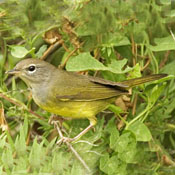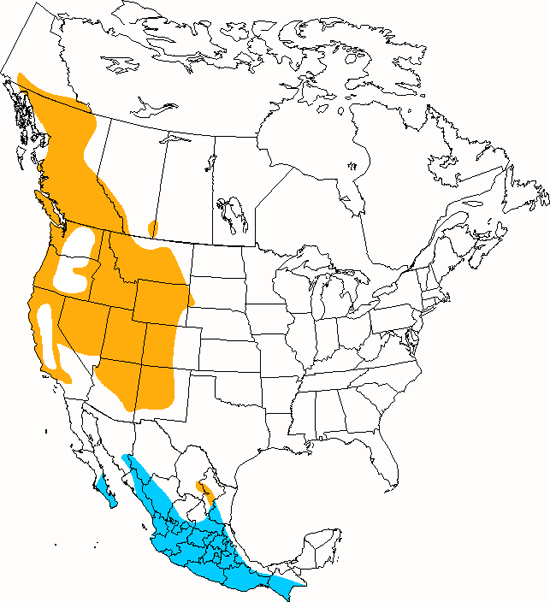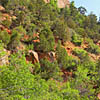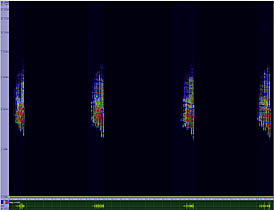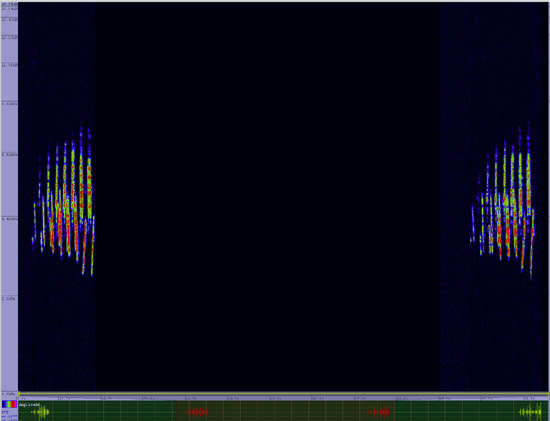MacGillivray's Warbler
Oporornis tolmiei

Perching
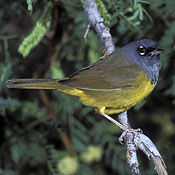
Length: 5 in. (13 cm )
Almost always found in dense vegetation near the ground, the MacGillivray\s Warbler can be hard toAlmost always found in dense vegetation near the ground, the MacGillivray\'s Warbler can be hard to detect except for its persistent and sharp call note given in migration and on both breeding and wintering grounds. The nest is placed near the ground in dense vegetation, usually near water, and constructed of grass and thin stems. If seen, individuals frequently hop across the ground in search of insects and spiders. Occasionally visits sap oozing from sapsucker holes high up on a tree trunk.
The four-digit banding code is MGWA.
Bibliographic details:
- Article: MacGillivray's Warbler
- Author(s): Dr. Biology
- Publisher: Arizona State University School of Life Sciences Ask A Biologist
- Site name: ASU - Ask A Biologist
- Date published: 13 Jul, 2017
- Date accessed: 23 September, 2025
- Link: https://askabiologist.asu.edu/activities/bird/macgillivrays-warbler
APA Style
Dr. Biology. (Thu, 07/13/2017 - 15:37). MacGillivray's Warbler. ASU - Ask A Biologist. Retrieved from https://askabiologist.asu.edu/activities/bird/macgillivrays-warbler
Chicago Manual of Style
Dr. Biology. "MacGillivray's Warbler". ASU - Ask A Biologist. 13 Jul 2017. https://askabiologist.asu.edu/activities/bird/macgillivrays-warbler
MLA 2017 Style
Dr. Biology. "MacGillivray's Warbler". ASU - Ask A Biologist. 13 Jul 2017. ASU - Ask A Biologist, Web. https://askabiologist.asu.edu/activities/bird/macgillivrays-warbler
Be Part of
Ask A Biologist
By volunteering, or simply sending us feedback on the site. Scientists, teachers, writers, illustrators, and translators are all important to the program. If you are interested in helping with the website we have a Volunteers page to get the process started.



